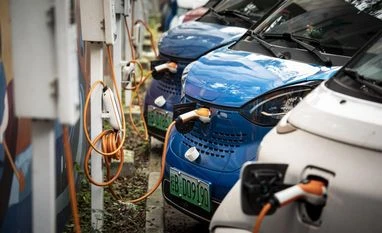Brazil’s ports are overwhelmed with more than 70,000 unsold Chinese electric vehicles (EVs) this year, reflecting the mounting challenges for Chinese automakers in sustaining their rapid growth, according to a Bloomberg report. Brazil had previously exempted EVs and hybrids from a 35 per cent import tax to stimulate market adoption.
This policy, introduced in the last decade, attracted Chinese carmakers, which effectively created the sector in the nation of over 200 million people. Meanwhile, established local manufacturers, including subsidiaries of global giants like General Motors, largely overlooked the electric and hybrid market until recently.
When the Brazilian government, under President Luiz Inácio Lula da Silva, reinstated import tariffs in January 2023, starting at 10 per cent and set to rise to 35 per cent by mid-2026, Chinese manufacturers responded swiftly.
Chinese automakers such as BYD and Great Wall Motor, which are striving to expand globally, see Brazil as a pivotal market. As the world’s sixth-largest car market, Brazil offers significant opportunities, particularly with other major economies adopting protectionist measures.
After initially dominating Brazil’s emerging EV market, Chinese manufacturers now face stiff competition and slowing demand. The backlog of vehicles at Brazilian ports results from efforts to preempt recently reinstated import tariffs. Domestic carmakers, motivated by the competition, have ramped up their EV offerings and investments, the report said. However, the growth rate of EV adoption in Brazil is beginning to plateau, reflecting a broader global trend.
BYD’s move to counter Brazilian tariffs
BYD is on track to exceed $100 billion in global sales this year, with Brazil playing a significant role as its largest international market, the report said. The company, which entered Brazil in 2021, gained market share by offering competitively priced EVs, such as its entry-level model priced at just 115,800 reais ($19,100) — cheaper than many petrol-powered rivals.
More From This Section
BYD shipped massive inventories to Brazil ahead of the tariff increases, Bloomberg noted. By November, the company reported having 35,000 cars stuck at ports, representing around four months’ supply. Alexandre Baldy, BYD Brazil’s senior vice-president, defended this strategy, arguing it would help maintain competitive pricing while addressing what he termed an “outdated” domestic industry.
Cooling demand and EV adoption challenges
While EV sales in Brazil have grown, their share in total car sales has levelled off. Electrified vehicles accounted for 7 per cent of total car sales in January 2023, nearly double the previous year’s share, but the rate has stagnated since. Out of 2 million cars sold through October, just 140,000 were electrified units, according to Anfavea, Brazil’s carmakers’ association.
Brazil’s vast geography poses additional challenges for EV adoption. With limited charging infrastructure and long distances between population centres, many consumers remain hesitant about switching to electric vehicles, the report highlighted. To address this, Chinese automakers are doubling down on investments, with BYD planning to open its first factory outside Asia in March 2025 at a former Ford facility. The plant, which represents an investment of 5.5 billion reais, aims to produce 300,000 cars annually within two years. BYD is also doubling its dealership network and introducing new models, including what it claims to be the country’s first hybrid pickup truck.
Great Wall Motor is also accelerating its Brazilian expansion. It plans to open a factory at a former Daimler plant in May 2025, committing 10 billion reais over the next decade to bolster its footprint.
Europe’s tariffs on Chinese EVs spark trade tensions
This comes on the back of Chinese EV makers facing another hurdle in Europe, where the European Union has imposed steep tariffs on imported EVs in October. Citing concerns over state subsidies that allegedly give Chinese manufacturers an unfair advantage, the EU plans additional duties of up to 35.3 per cent. Major manufacturers like SAIC Motor will face the highest rates, while BYD and Geely will see additional tariffs of 17 per cent and 18.8 per cent, respectively. Tesla, which negotiated separately, will pay just 7.8 per cent.
These tariffs, slated to last five years, have heightened trade tensions between the EU and China. Beijing has condemned the move and lodged a complaint with the World Trade Organization.
Intensifying competition in Brazil’s EV market
Despite these challenges, Chinese automakers remain undeterred. Alongside BYD and Great Wall Motor, other Chinese players, such as Chery Automotive’s Omoda and Jaecoo brands, GAC, and Neta, are making aggressive moves in Brazil. Geely’s premium Zeekr brand has also entered the market, the report mentioned.
At the same time, traditional automakers are stepping up efforts to compete in the dynamic electric market. Volkswagen, Toyota, and Renault have committed to investing over 100 billion reais by 2030, with a focus on hybrid vehicles and ethanol-based flex-fuel solutions.
Stellantis, the parent company of Fiat, Jeep, and Peugeot, is also gearing up to expand its EV portfolio. It plans to introduce electric vehicles from its Chinese partner Leapmotor in early 2024, aiming to strengthen its position amid growing competition.
)